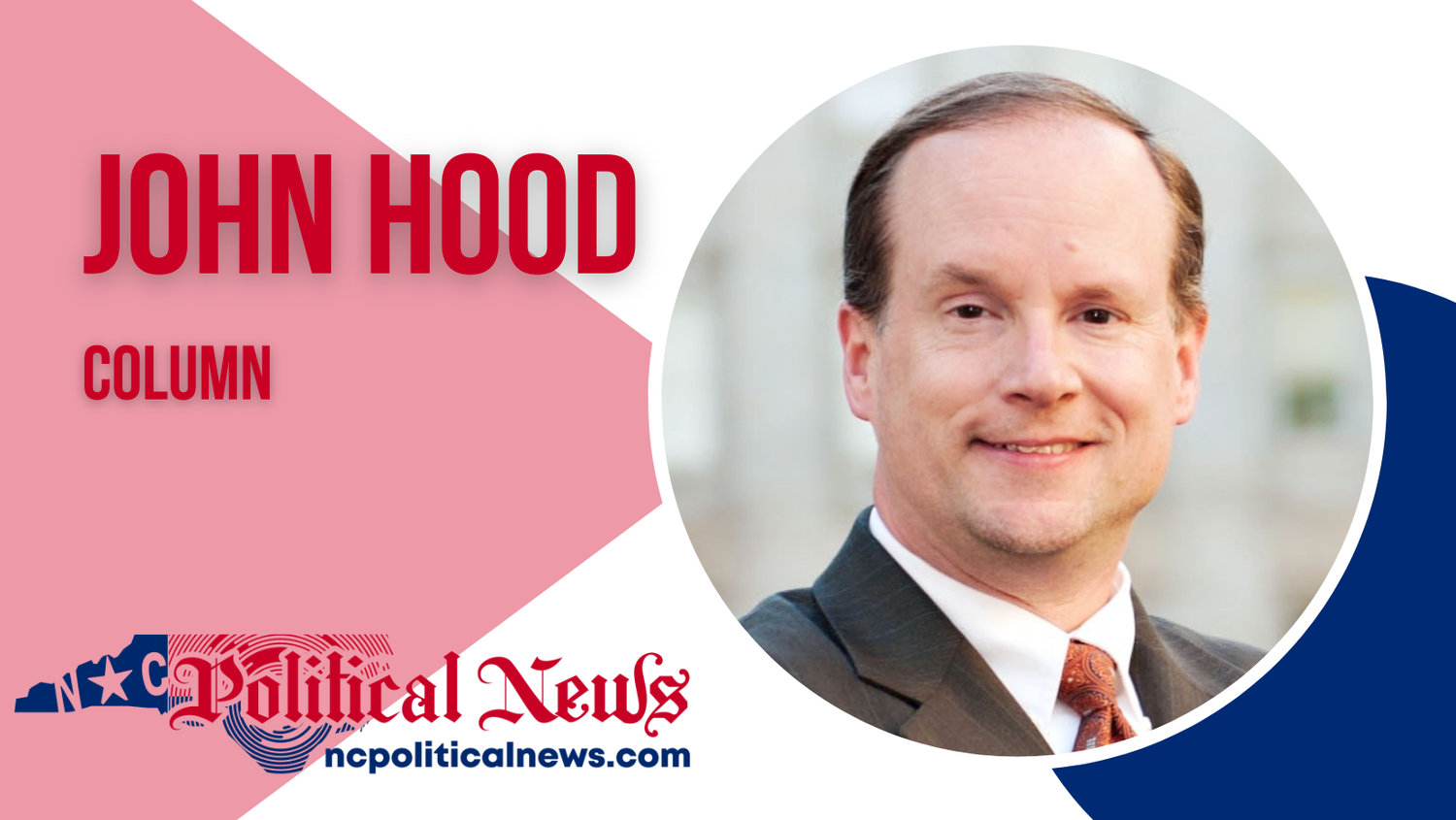John Hood: Let's talk taxes - the right way
RALEIGH — State and local governments annually collect tens of billions of dollars in taxes from North Carolinians. The total bill comes to an average of $5,300 per person per year.
Most Americans pay more than we do. According to the latest Facts & Figures report from the Tax Foundation, state and local taxes across the country consume an average of 11.2% of income. North Carolina’s combined tax burden is 9.9%. That is lower than Virginia’s 12.5% and Maryland’s 11.3%. But it’s higher than in Texas (8.6%), South Carolina (8.9%), Georgia (8.9%), and Florida (9.1%).
Taxes divided by income isn’t the only relevant measure, however. At any given level of taxation, there can better and worse ways to collect the money. Some systems are fairer than others, more efficient than others, or more favorable to investment and job creation than others.
Indeed, the Tax Foundation rates North Carolina’s tax code the 9th friendliest to economic growth, given our relatively low taxes on property, payrolls, and corporate incomes and our relatively flat taxes on personal income and retail sales. When our corporate tax is fully phased out by the end of the decade, North Carolina’s ranking will improve. If lawmakers follow that up by reducing franchise or capital-gains taxes, it will improve even more.
There’s plenty of room for reasonable debate about tax policy. Still, the debate will be more constructive if everyone keeps these three facts in mind:
• When making nationwide comparisons, citing state taxes alone can be misleading. Systems of public finance vary widely. Here in North Carolina, for example, we primarily fund public schools with state dollars, not local dollars, and have done so for many decades. In other states, local property taxes play a predominate role.
Other states also have county road systems financed by county taxes. We don’t. That’s the main reason our motor-fuels tax (62 cents in most cases) is one of the highest in the country. North Carolina motorists don’t pay more for transportation. We pay differently. What we finance with gas taxes, other places finance with property or sales taxes. When I ran a full accounting of the numbers some years ago, our transportation tax burden was below average, not above average.
If you run across stories comparing the tax burden where you live to tax burdens elsewhere, look at the fine print. If it references only state taxes, only local taxes, or only one kind of tax, you’re probably consuming clickbait, not truly useful information.
• In part because of such structural differences, North Carolina’s mix of taxes deviates from the mean. We rely more on personal income tax (31% of tax collections in 2021) and sales tax (26%) than does the average state (26% and 23%, respectively). On the flip side, property taxes make up 23% of collections here vs. 30% in the average state.
This will change a bit as the General Assembly continues to pursue tax reform. Just don’t expect those changes to be dramatic.
• When it comes to taxes, who’s the fairest one of all? As it happens, we do need to consult a mirror to answer this question, because we don’t all share the same definition of tax “fairness.”
I’ve written many columns — and even the better part of two books — on this issue, so I won’t try to summarize all the arguments and evidence here. But I will make this point: those who pay state and local taxes also pay federal taxes. I’m not just talking about federal income taxes. I mean federal payroll taxes, excise taxes, and the portion of tariffs and business tax burdens shouldered by consumers and workers.
No serious study of federal, state, and local taxes combined shows anything other than a progressive system in which wealthy households pay a higher share of their income in taxes than middle-income households do. The latter, in turn, pay more than poor households.
Fair? Not fair? Let’s discuss — so long as the discussion remains tethered to reality.
John Hood is a John Locke Foundation board member. His latest books, Mountain Folk and Forest Folk, combine epic fantasy with early American history (FolkloreCycle.com).
Are you tired of being bombarded by paywalls and pop-up ads when trying to read the news? Do you believe that access to reliable political news should be free and accessible to everyone? Then we urge you to support NC Political News, a weekly electronic political news outlet.
NC Political News is committed to providing high-quality, unbiased political reporting with columnists from all political sides. Unlike other news outlets, NC Political News is free to read and supported by businesses who purchase ad space on our website and in our newsletter, which goes out Monday through Friday at 7:00 am. This means that readers like you can access the news without being asked to pay a cent or dealing with frustrating advertisements.
However, to continue providing this valuable service, NC Political News needs your support. If you believe in the importance of accessible, free news, we urge you to click the image below. Any amount of support is appreciated.
Together, we can keep the news free and help ensure our state stays informed and connected.




